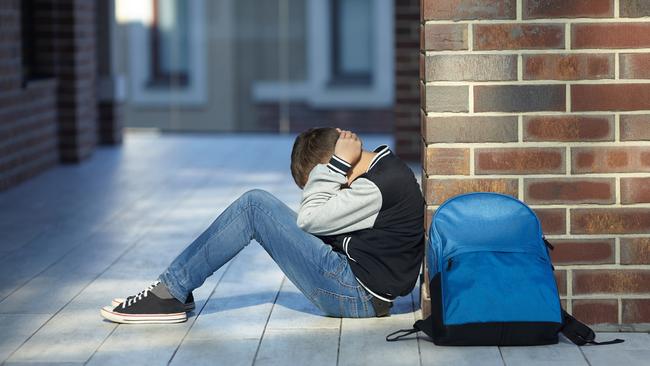Giving kids tools to deal with bullies critical, expert says
Teaching kids how to have positive thoughts and reminding them of their self-worth is key to handling bullying behaviour, a leading child educator says.

Governments, schools and parents need to widen their focus from identifying and re-educating bullies to teaching young people how to better cope with the emotional damage bullying does, a leading educator says.
And girls need particular support, given research shows they are more vulnerable to bullying, Michael Bernard says.
The former Melbourne University professor said addressing school bullying requires more attention on giving children and adolescents the tools to emotionally protect themselves if they find themselves on the receiving end.
“Schools have programs on preventing bullying, restorative justice systems for holding bullies accountable, education for bullies as to the consequences of their behaviour and positive behaviour rules in schools to limit the extent of bullying, and so they should,” Professor Bernard said.
“On the other side, there’s too little investment in equipping all kids with the skills and resources to manage being bullied in a way that doesn’t overwhelm them.”

The California State University emeritus professor said the key to empowering young people to rise above bullying is to understand they have the power to choose between the negative thinking that leaves them upset about being bullied to a positive mindset that puts them more in control.
And young people must be supported to understand they do not lose their self-worth and that however bad the bullying seems, there are worse things that can happen in life.
Professor Bernard said his recent research using a bullying prevention program he designed that focused on helping young people to emotionally regulate had yielded strong results, with more than 90 per cent feeling like they could manage incidents of bullying.
“What is abundantly clear, and this applies to people in the workplace as much as it does to school students, is that people’s mindset about bullying largely determines the effect of the bullying on their emotional and behavioural response,” he said.
The issue of bullying is again in the spotlight after the suicide of a 12-year-old girl in Sydney earlier this month, with her family saying she had been bullied by other students for years and the school should have stepped in earlier to address it.

Data from the Australian Council for Educational Research’s Social-Emotional Wellbeing Survey last year showed children and adolescents reported an increase in stress and anxiety every year from 2018 to 2023.
Levels of stress are much higher for girls than boys, along with significant deterioration from primary to secondary years and from year 7 to year 12, the survey revealed.
Professor Bernard said his new research had shown girls were more likely to show significant improvements with anti-bullying programs when they were targeted, primarily because they tended to respond more negatively to being bullied in the first place.
He said governments including departments of education had a critical role in doing all they could to minimise bullying in schools but they weren’t investing in programs aimed broadly at developing an intrinsic capacity to cope.
At a more granular level, parents and teachers could play their parts too, he said. “They need to have conversations with young people that include the essential points that acts of bullying are bad, but ‘bad’ does not mean catastrophic, that they can cope with things that are bad, and that they should not take the bullying personally.”
If you need support, help is available. Please contact Lifeline 13 11 14; Beyond Blue 1300 224 636; Kids Helpline 1800 55 1800;






